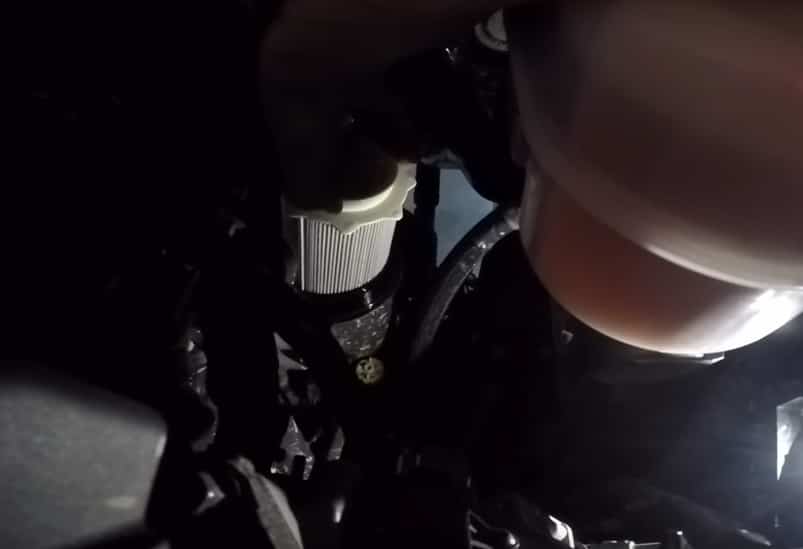Your fuel filter plays a critical role in keeping your engine protected from particles that may enter your fuel system.
What Are the Signs of a Failing or Faulty Fuel Filter?

The fuel filter is pretty easy to forget about as it is typically located well out of sight. Even when it comes to remembering things that often need regular attention in a vehicle, the fuel filter tends to go overlooked. This can lead to a lack of maintenance, which is unfortunate because the fuel filter is a vital piece of equipment which ensures your vehicle starts and runs properly by filtering out any particles that could be present in the fuel. Dirty fuel can impact the way your engine runs and even damage certain engine components, so having a functioning fuel filter is paramount.
If left unattended, over time a fuel filter can become dirty and clogged, which means it will no longer be filtering fuel as well as it should be or in serious cases, not at all. Fuel filters can also be faulty, leading to the same undesirable results. There are some common indicators that something is wrong with the fuel filter that everyone should be aware of:
Difficulty starting the vehicle – A filter that is clogged can severely restrict the amount of fuel getting to the engine, which can lead to hard starting. This is more commonly seen in a vehicle with a fuel filter that has not been changed at the recommended interval.
Engine misfiring at random – Engine performance issues, such as misfiring, can be a symptom of a faulty or failing fuel filter. Other issues include problems with acceleration, power, and stalling.
Check engine light comes on – There are numerous problems that can lead to the check engine light coming on and a clogged or failing fuel filter is one of those things. In order to determine whether or not the fuel filter is the actual cause, it is best to have a diagnostic scan for all problem codes.
Losing power while under load – If your vehicle is powering out when going up an incline or during steady acceleration, it could be due to a clogged filter. The amount of fuel needed under load, towing or to maintain speed while going up a hill isn’t getting through the filter, leading to a low power condition.
Water in fuel light – most Cummins powered trucks have some form of indicator for water in fuel, usually a light in the dash. At the first possible opportunity the fuel filter housing should be drained and the fuel filter replaced. If a large amount of water has somehow gotten into the tank then it will have to be drained, removed and cleaned. A totally water saturated fuel filter will not stop the water from entering the engine fuel system. The water separator system is designed to capture trace amounts only, so avoid unknown fuel sources. Also avoid-alcohol based conditioners as they are designed to break water into smaller molecules that can pass through the filtration system.
Cummins Diesel Fuel Filter Change Interval:

So, when should a filter be changed, and can you do it yourself? The model year of truck you own will determine the fuel filter change interval. We recommend changing your fuel filters more often than the manufacturer recommends as western Canadian fuel has one of the highest rates of contaminants of any fuel anywhere, even right out of the pump. According to Bosch the highest rate of fuel component failure resides within Alberta compared to elsewhere in Canada and the main reason for the failures is due to contamination. Frequent fuel filter changes along with the right kind of fuel conditioner will go a long way to keep your fuel system components lasting as long as possible. Also buy OE quality filters with a low micron filtration rating; they will pay for themselves over the long run.
Depending on the vehicle type, changing the fuel filter yourself can be DIY. However, as always there is a right and wrong way to do the job which means that it may be a task for your regular mechanic to tackle.



